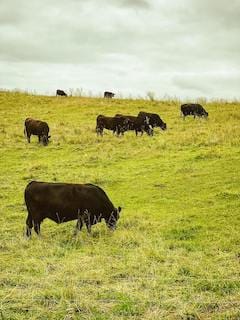Canada’s agricultural sector, a cornerstone of the global food supply, is grappling with a severe labor shortage that threatens its sustainability. Farms across the country are struggling to find skilled workers, even as immigrants with farming experience continue to arrive in Canada. Many immigrants, despite having a background in agriculture, face challenges in breaking into the industry. This gap between their aspirations and reality highlights a crucial issue in the Canadian labor market.
When immigrants first arrive, they often prioritize settling their families and securing steady work. For the first 8-10 years, many take on jobs outside of agriculture, in fields such as warehouse operations, fast food, or driving delivery services. These jobs, while necessary for survival, pull them away from the farming careers they once envisioned. As they gain experience in non-agricultural industries, their career paths shift, and their farming dreams get left behind.
Young Canadians born into farming families often share similar struggles. While they may not have been active farmers, their roots in agriculture run deep, and many express a desire to return to farming. However, the lack of awareness about agricultural opportunities in rural areas poses a barrier. Many rural regions, particularly in provinces like British Columbia, Alberta, Saskatchewan, and Manitoba, have ample farming opportunities, but few young people know about them.
Canada’s farming industry, from canola fields to livestock, plays a vital role in the global food supply chain. The country is a leading producer of rapeseed, peas, and lentils, but it faces a growing problem: an aging workforce and a lack of skilled labor. As farmers retire, the labor gap widens, leaving many farms unable to operate efficiently. This is where immigrants with farming backgrounds could step in to meet the demand, but only if they are made aware of the opportunities.
Many immigrants come to Canada with the hope of finding work in agriculture, but the reality is often more complicated. Settling into a new country brings responsibilities that push farming aspirations to the back burner. The agricultural sector, however, continues to present opportunities, especially during seeding and harvest seasons. These periods require a large, skilled workforce that could be filled by immigrants and young Canadians if they knew how to enter the industry.
A support system designed to connect immigrants and young people with agricultural opportunities could address the labor shortage while helping individuals achieve their farming dreams. Such a system would bridge the gap between urban areas, where most immigrants settle, and rural farms, where the demand for labor is highest. By reaching out to farmers and creating pathways into agriculture, Canada could tap into a new, motivated workforce.
For many, farming is more than just a job; it’s a calling. Driving through rural Canada, it’s easy to see the allure of the open fields, massive farming machinery, and the satisfaction of growing crops from the ground up. Immigrants and young Canadians alike share this vision, but they need support to make it a reality. Farming offers fulfillment that many other industries cannot, yet the pathway to this career remains unclear for many newcomers.
As Canada’s agricultural industry grows, so does its need for workers. Grain, oilseed, potato, and livestock farms generate significant profits, but they cannot operate without labor. Without action, Canada risks a continued labor shortage that could hurt both the economy and its status as a global leader in agriculture. Immigrants with farming skills and young people from farming families represent an untapped resource that could drive the industry forward.
Bringing awareness to agricultural opportunities is crucial. Few people, especially in urban areas, understand the wide variety of farming jobs available in Canada. There is a misconception that farming is limited to a select few, but in reality, it spans across many areas—vegetables, poultry, beef, and more. By creating pathways into these sectors, Canada can build a stronger agricultural workforce and create fulfilling career opportunities for immigrants and young Canadians.
Farming in Canada is a tradition, and its continuation relies on bringing in new, passionate individuals. As the demand for agricultural products grows globally, Canada’s farms need more workers than ever before. Through education, outreach, and support, Canada can revitalize its farming workforce and offer a way of life to those who long for it. In doing so, the country can maintain its status as a leading agricultural producer while helping immigrants and young Canadians fulfill their professional and personal dreams.
